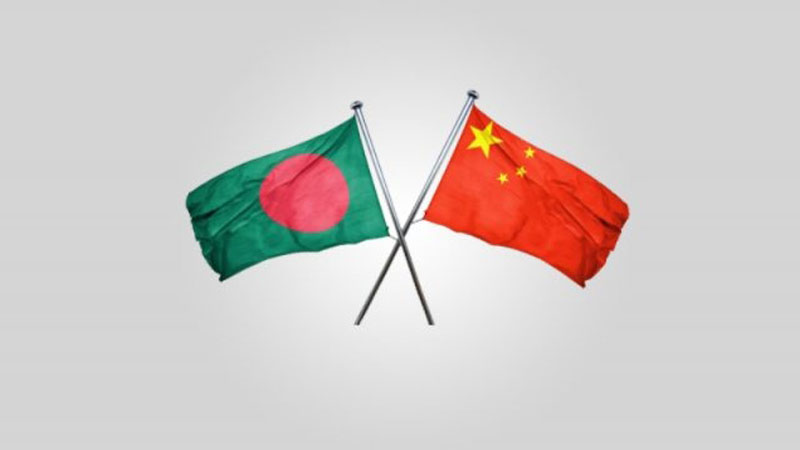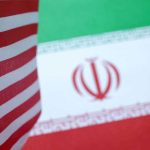With an eye on geopolitics, Bangladesh prepares for PM Hasina’s visit to china

STAFF REPORTER
As Prime Minister Sheikh Hasina prepares for a pivotal visit to China in July, in broader geopolitical terms, Bangladesh is eager to find common ground between its national interests and those of China to ensure the success of the Prime Minister’s visit, according to sources within the Ministry of Foreign Affairs.
As a preparatory measure, Foreign Secretary Masud Bin Momen recently travelled to Beijing for discussions. On Monday, June 3, he met with Chinese Vice Minister of Foreign Affairs Sun Weidong. The meeting covered two primary aspects of the visit: the substantive elements and the protocol.
Strategic Freedom and Diplomatic Challenges
Former Foreign Secretary and Delhi University Bangabandhu Chair, Md. Shahidul Haque, emphasized the importance of maintaining Bangladesh’s ‘strategic freedom’ while working with China, ensuring full control over the nature of relationships and the implementation of foreign policy. A Foreign Ministry official stated that Bangladesh’s relationship with China would not cause discomfort to other countries, as it maintains a balanced foreign policy.
Prime Minister Hasina’s visit will be closely monitored by India and the United States, as the relationship between Bangladesh and China affects Bangladesh’s relations with both countries. Shahidul Haque noted the ideological battle between China and the Western world led by the United States, stating, “There is no doubt that other countries will closely observe this visit.”
In diplomacy, perception often becomes more critical than actual events. Haque emphasized the importance of effectively informing various parties about Bangladesh’s actions and intentions. During President Xi Jinping’s visit to Dhaka in 2016, Bangladesh maintained close contact with India and the United States, conveying that the visit was crucial for Bangladesh and would not harm other countries.
A Foreign Ministry official agreed, highlighting the importance of effective communication with India, China, and the US in the current complex geopolitical landscape.
According to the sources within the Ministry of Foreign Affairs, Bangladesh seeks China’s assistance in its developmental journey. On the other hand, Beijing aims to strengthen its position in South Asia by contributing to the development of its close neighbor.
PM Hasina’s Past Meetings with Xi
Over the past decade, President Xi Jinping of China and Prime Minister Sheikh Hasina have had at least four significant meetings, including the Prime Minister’s bilateral visit to Beijing in 2014, Xi Jinping’s visit to Dhaka in 2016, the Prime Minister’s return visit to Beijing in 2019, and a crucial meeting on the sidelines of the BRICS Summit in South Africa in 2023.
Trade Deficit Discussions
There is a significant trade deficit between Bangladesh and China. Despite China granting duty-free access to 98 per cent of Bangladeshi products, exports to China have not increased significantly. Last year, Bangladesh exported goods worth around $700 million to China while importing goods worth over $20 billion.
The Foreign Secretary stated, “The duty-free access for 98 per cent of Bangladeshi products in China is not working effectively. We have raised the issue of reassessment. We have also discussed the continuation of duty-free access beyond 2026.”
“We are also discussing establishing a taka-renminbi arrangement similar to the taka-rupee arrangement with India,” said Masud Bin Momen.
He mentioned, “We are discussing budgetary support and trade support. Broadly speaking, there is a mutual understanding between Bangladesh and China to conclude the free trade agreement study and start a new chapter, and they are also very interested in this.”
New Projects
Of the 27 projects undertaken during President Xi Jinping’s visit to Dhaka in 2016, 15 have been completed, six are ongoing, and new projects are being considered for the remaining six.
The Foreign Secretary stated, “We have mentioned a few projects. They have noted them. It takes time in the system. They will review, scrutinize, and conduct feasibility studies. They will not commit without verification.”
However, he pointed out that if the verification process takes too long, it can undermine the project’s viability, which has been communicated to the Chinese authorities.
The loans from China have an interest rate of 2.0 per cent to 3.0 per cent with a 20-year repayment period. He mentioned, “We have raised the issue of repayment terms similar to those with other countries.”
Rohingya Crisis
Bangladesh has sought the support of China and other powers to resolve the Rohingya issue. The Foreign Secretary stated, “We have asked them (China) to use their influence over the conflicting parties in Myanmar to ensure that there is no new war in Arakan and to achieve a ceasefire. We do not want new Rohingya refugees to come to Bangladesh. We have strongly conveyed this. They have said they will look into the matter.”
Geopolitics
Bangladesh is aware of the complex equations among various regional and global powers, including China. In this context, Bangladesh will implement its foreign policy. The Foreign Secretary stated, “We will continue to implement a balanced foreign policy as we have done before.”
“We can consider Japan as a neutral friend in this equation. Working on any cooperation with Japan is much easier for us. Japan does not have an adversarial relationship with China. They have significant trade between them,” he noted.














